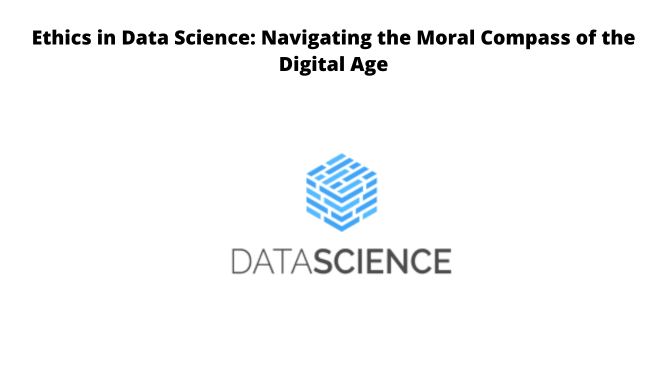Introduction:
As data science continues to reshape industries and drive innovation, a critical consideration comes to the forefront: ethics. The power to extract insights from vast datasets carries immense responsibility, as decisions made based on data can have profound impacts on individuals and society.
In this blog post, we’ll delve into the ethical dimensions of data science, exploring key considerations, challenges, and the imperative for ethical decision-making in the digital age.
The Ethical Landscape of Data Science:
-
Privacy Concerns: The collection and analysis of personal data raise significant privacy concerns. Striking a balance between extracting valuable insights and protecting individuals’ privacy is a constant challenge in the data science field.
-
Bias and Fairness: Machine learning models can inadvertently perpetuate and even exacerbate societal biases present in training data. Addressing bias and ensuring fairness in algorithmic decision-making is an ongoing ethical challenge.
-
Transparency and Explainability: The complexity of some machine learning models makes it challenging to understand how they arrive at specific decisions. Ensuring transparency and explainability in algorithms is crucial for building trust and accountability.
-
Data Security: Safeguarding data against unauthorized access and breaches is a fundamental ethical responsibility. Data scientists must prioritize the security of the datasets they work with to prevent potential harm.
Guiding Principles for Ethical Data Science:
-
Informed Consent: Transparently communicate with individuals whose data is being used, ensuring they understand how their information will be utilized and for what purposes.
-
Fairness and Bias Mitigation: Actively identify and address biases in both data and algorithms, striving for fairness in the outcomes of machine learning models.
-
Data Minimization: Only collect and retain data that is necessary for the intended purpose, minimizing the risk of unintended consequences.
-
Accountability: Take responsibility for the ethical implications of data science projects. Establish clear lines of accountability and ensure that decision-makers understand the ethical considerations at play.
-
Continuous Evaluation: Regularly assess the ethical implications of ongoing projects, adapting practices in response to emerging ethical standards and societal expectations.
Real-world Examples:
-
Facial Recognition Technology: Controversies surrounding the use of facial recognition technology highlight concerns about privacy, accuracy, and the potential for biased outcomes, especially when applied to diverse populations.
-
Predictive Policing: The use of machine learning in law enforcement raises ethical questions about fairness, transparency, and the potential for reinforcing existing biases in crime data.
-
Healthcare Data Use: The ethical use of healthcare data involves considerations of patient privacy, consent, and the responsible handling of sensitive information for medical research and treatment.
Conclusion:
As data science continues to evolve, the ethical dimension becomes increasingly central to the conversation. Data scientists, policymakers, and organizations must work collaboratively to establish and uphold ethical standards that prioritize the well-being of individuals and society at large. By embracing a commitment to ethical data science, we can ensure that the power of data is wielded responsibly, fostering a digital landscape that benefits everyone while minimizing potential harms








